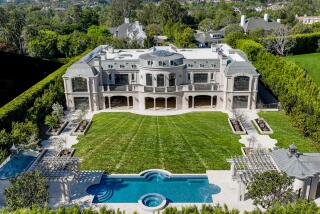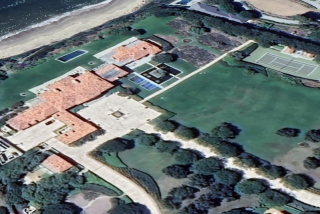U.S. Turns Down $650,000 Bid for Drug-Runner’s Mansion
- Share via
WINTER PARK, Fla. — “The Palms,” a 21-room mansion once appraised at $1.2 million, which had been confiscated from a convicted drug-runner, went on the auction block Sunday, but the highest bid of $650,000 was rejected.
“I’m personally disappointed we couldn’t have said, ‘Sold!’ at the time of the auction, but it wouldn’t have been in the government’s best interest,” said Peter Nagurny, supervisory deputy with the Orlando office of the U.S. Marshals Service.
Authorities had hoped for a $2-million bid, but only two people registered and both their offers were rejected as too low. A third person who saw the house but could not make the auction met with Marshals Service representatives later Sunday to work on a possible deal.
$13.3-Million Tax Bill
Any proceeds will go to pay off a portion of the $13.3 million in taxes the Internal Revenue Service says is owed by Robert Govern, now serving a 45-year prison sentence.
The house, listed in the National Registry of Historic Places, was built in 1899 in an elegant neighborhood in this posh Orlando suburb. It was confiscated after Govern’s 1981 arrest.
Govern, 39, was convicted of racketeering, tax violations, drug possession and conspiracy. Investigators said he headed an interstate smuggling network that sold up to a million pounds of marijuana from 1977 to 1981.
The house had been appraised at $1.2 million, but that was before the Opera Guild got hold of it.
Designers’ Show House
The mansion was sitting empty and slightly down-at-the-heels when the Opera Guild talked the government into letting the group use it as its 14th annual Designers’ Show House. The yearly fund-raising project provides tours of elegant homes for the benefit of the Orlando Opera Co.
Federal officials did not have to deliberate long to realize that the guild’s plans to bring in 28 top designers to renovate the mansion would improve its value. And the mansion’s notoriety helped the guild attract a record 12,000 people during 1986 and raise $60,000.
More to Read
Sign up for Essential California
The most important California stories and recommendations in your inbox every morning.
You may occasionally receive promotional content from the Los Angeles Times.













